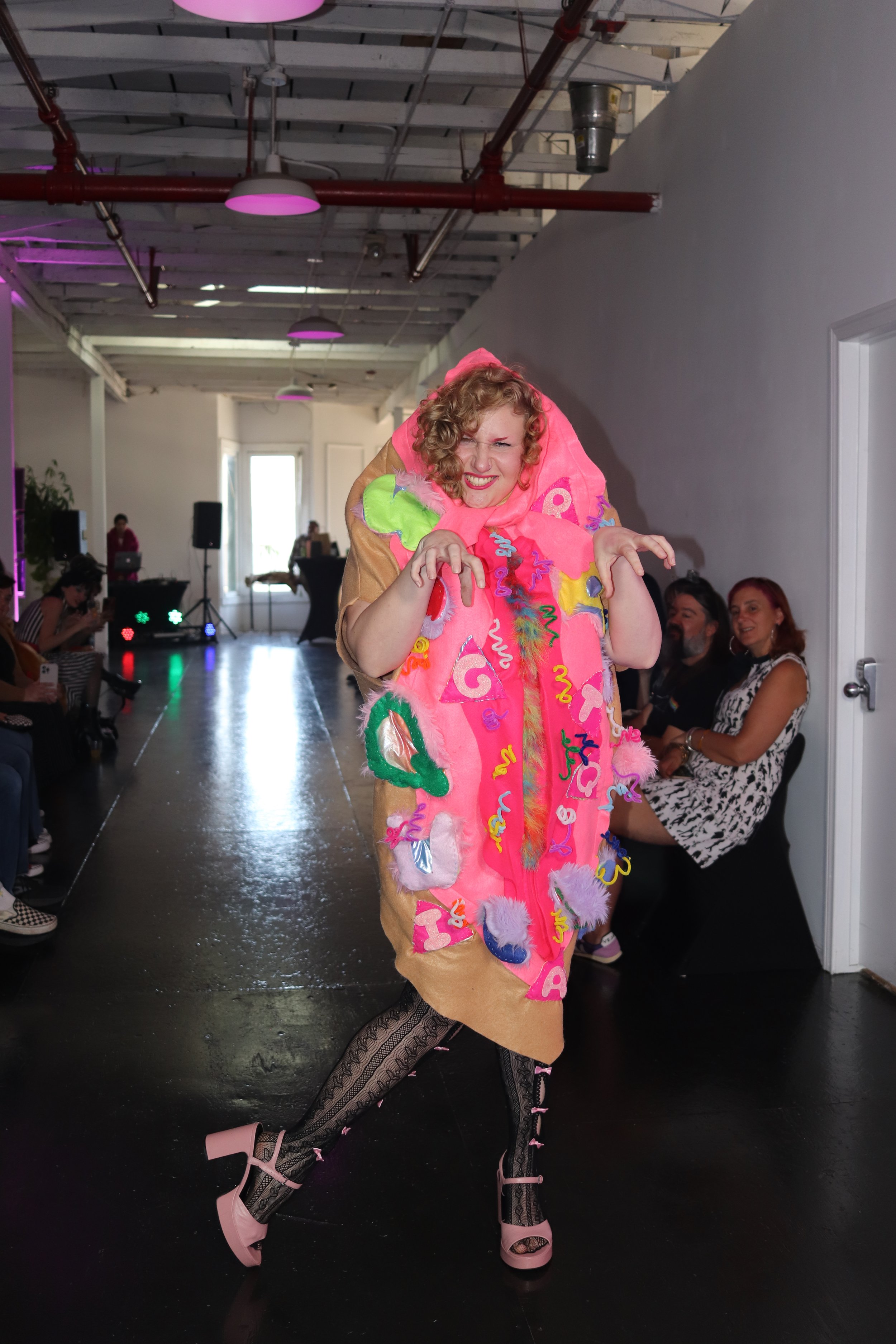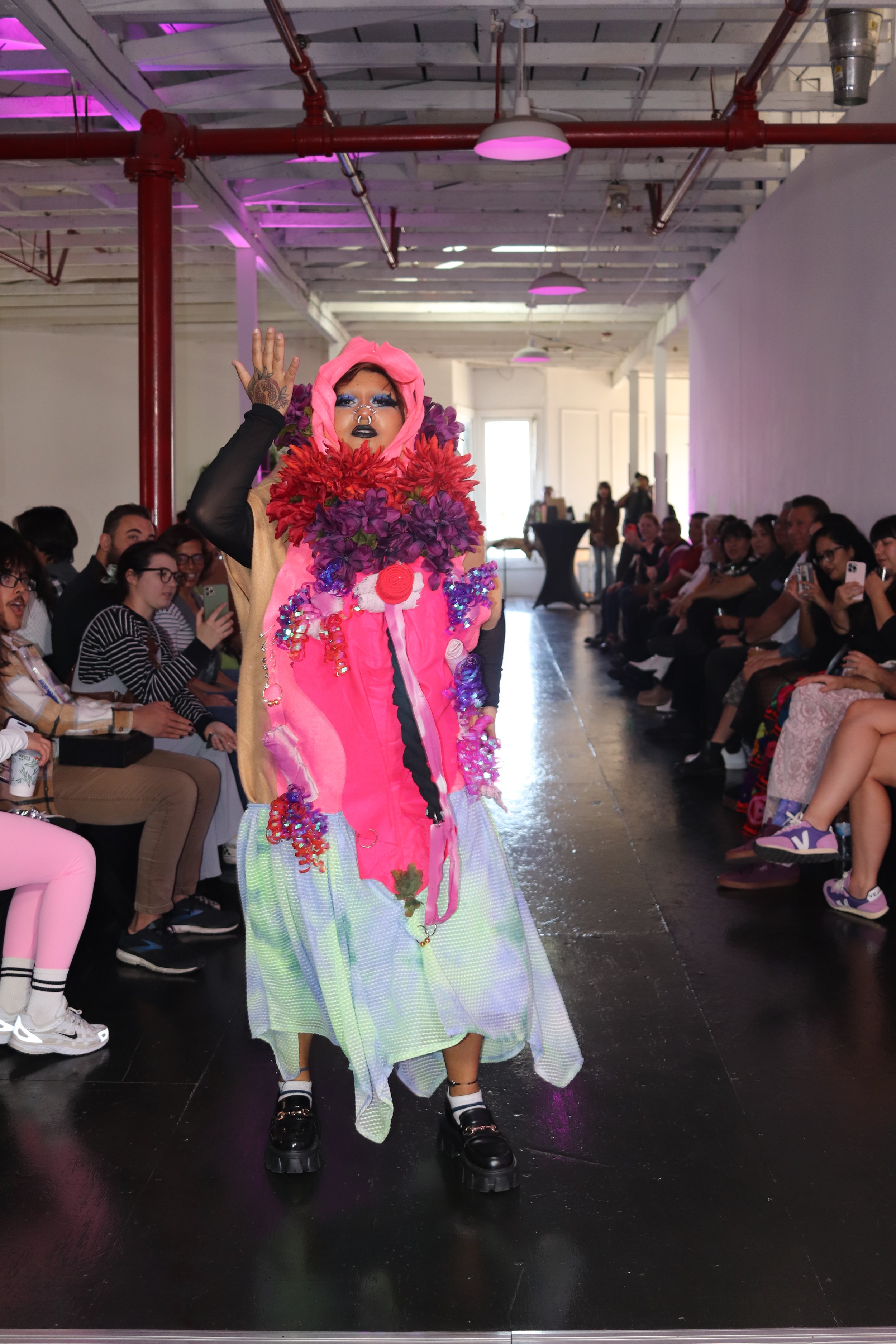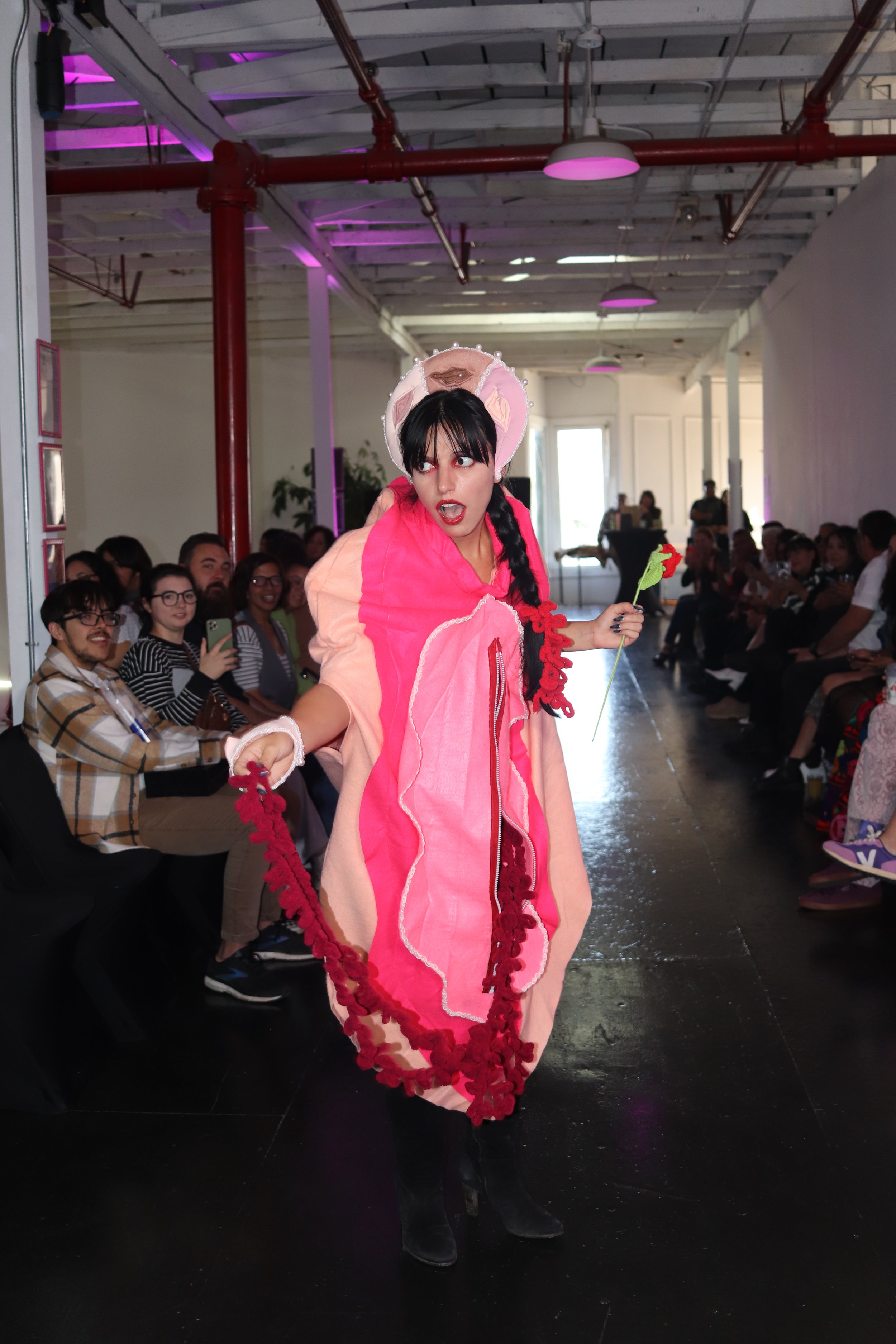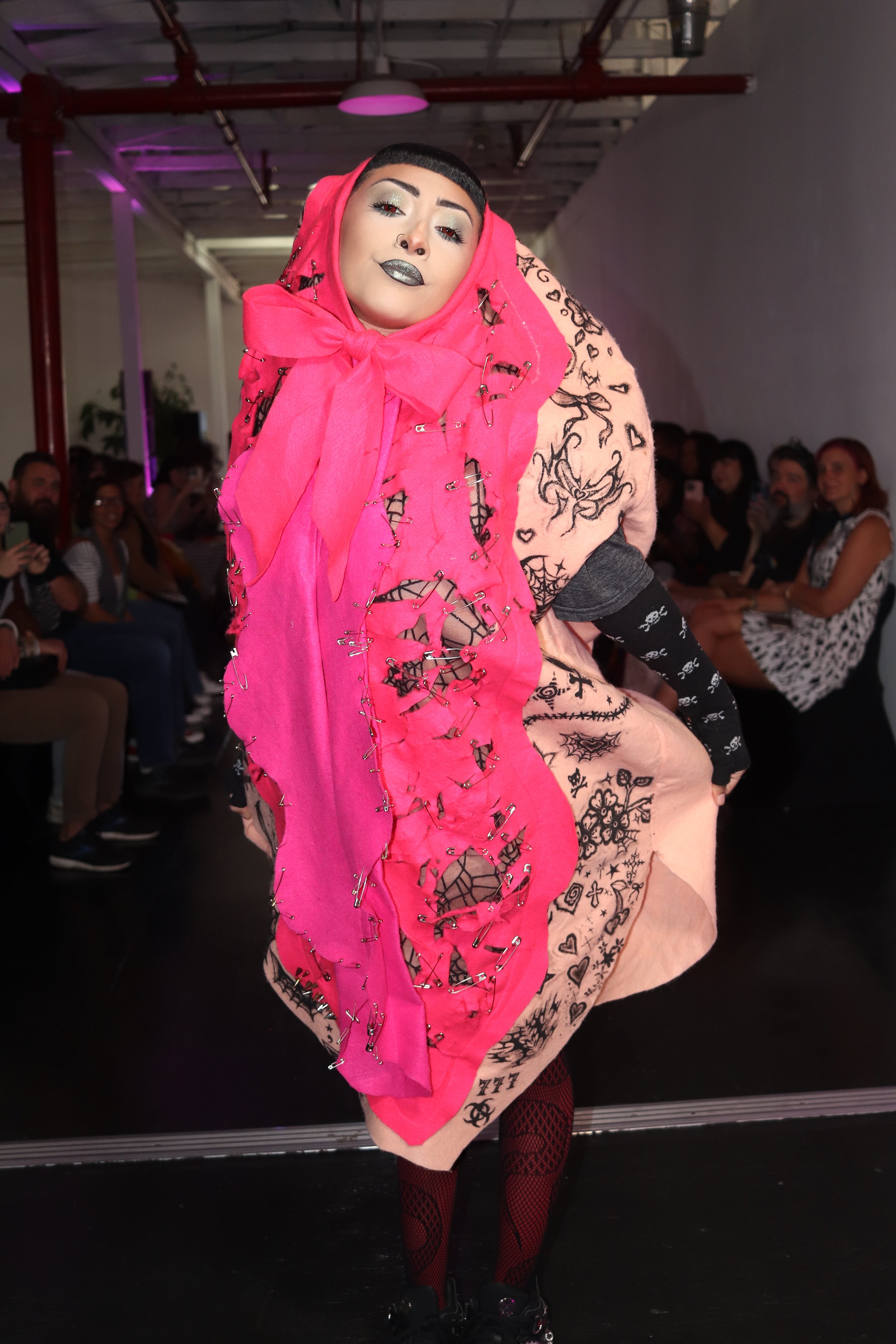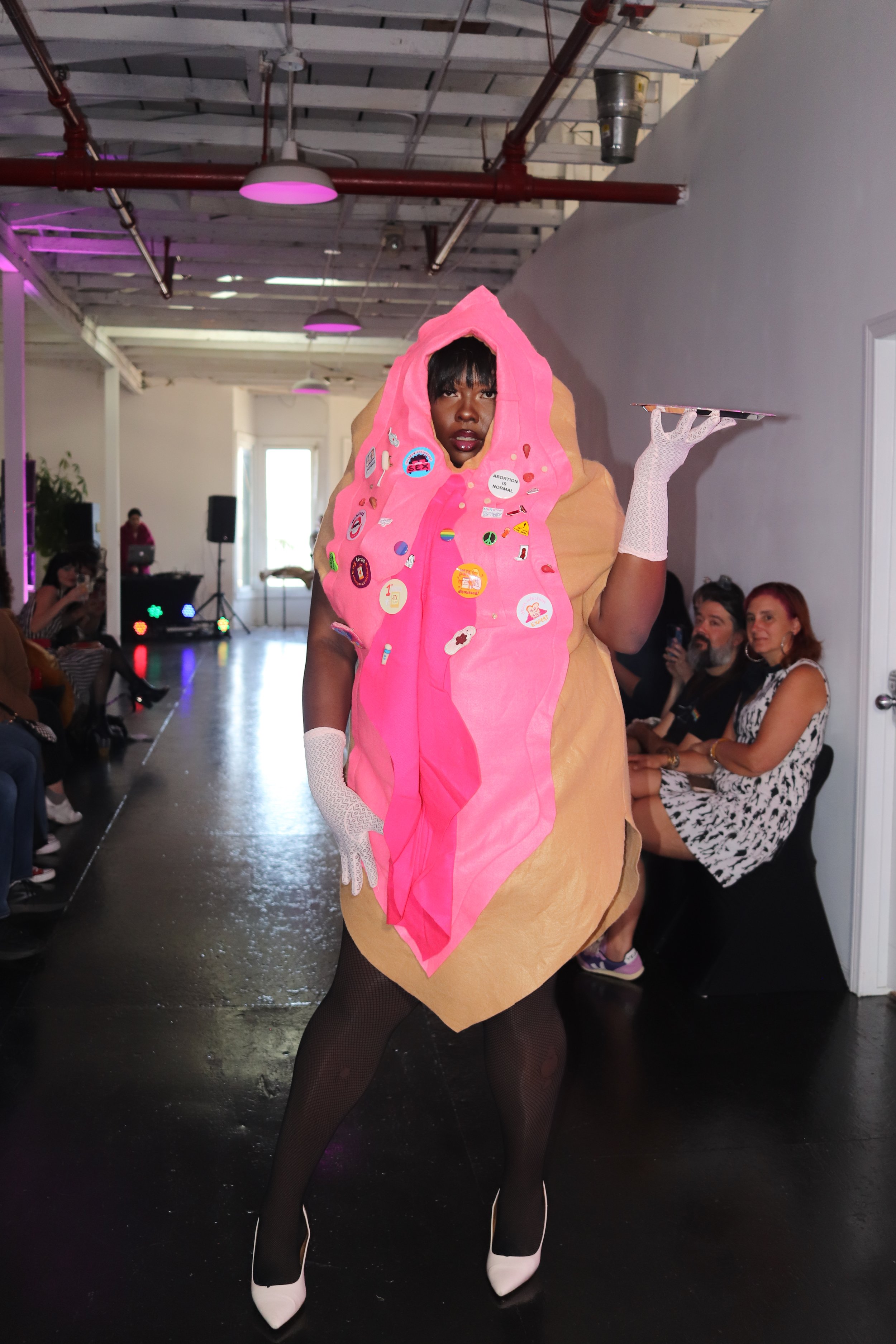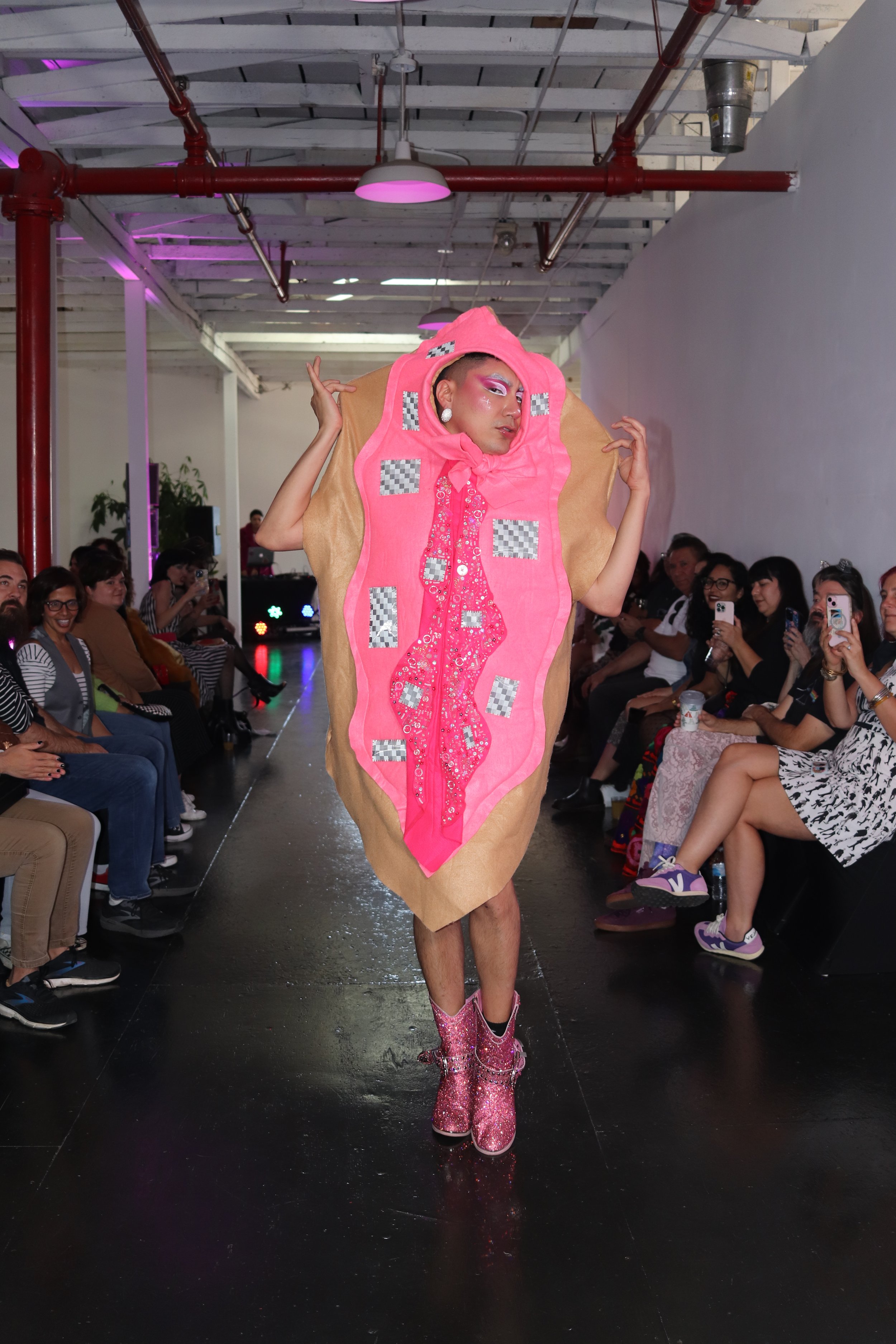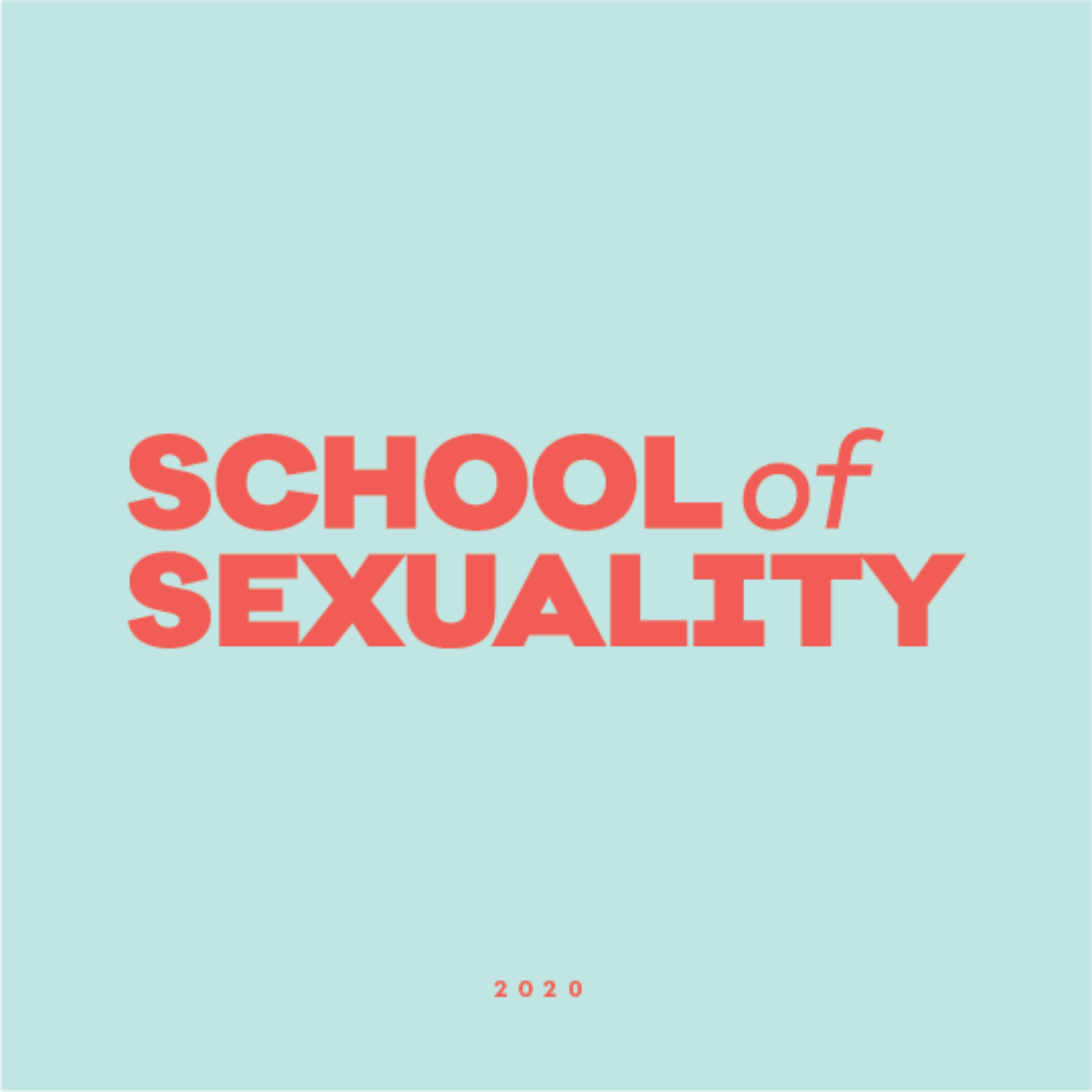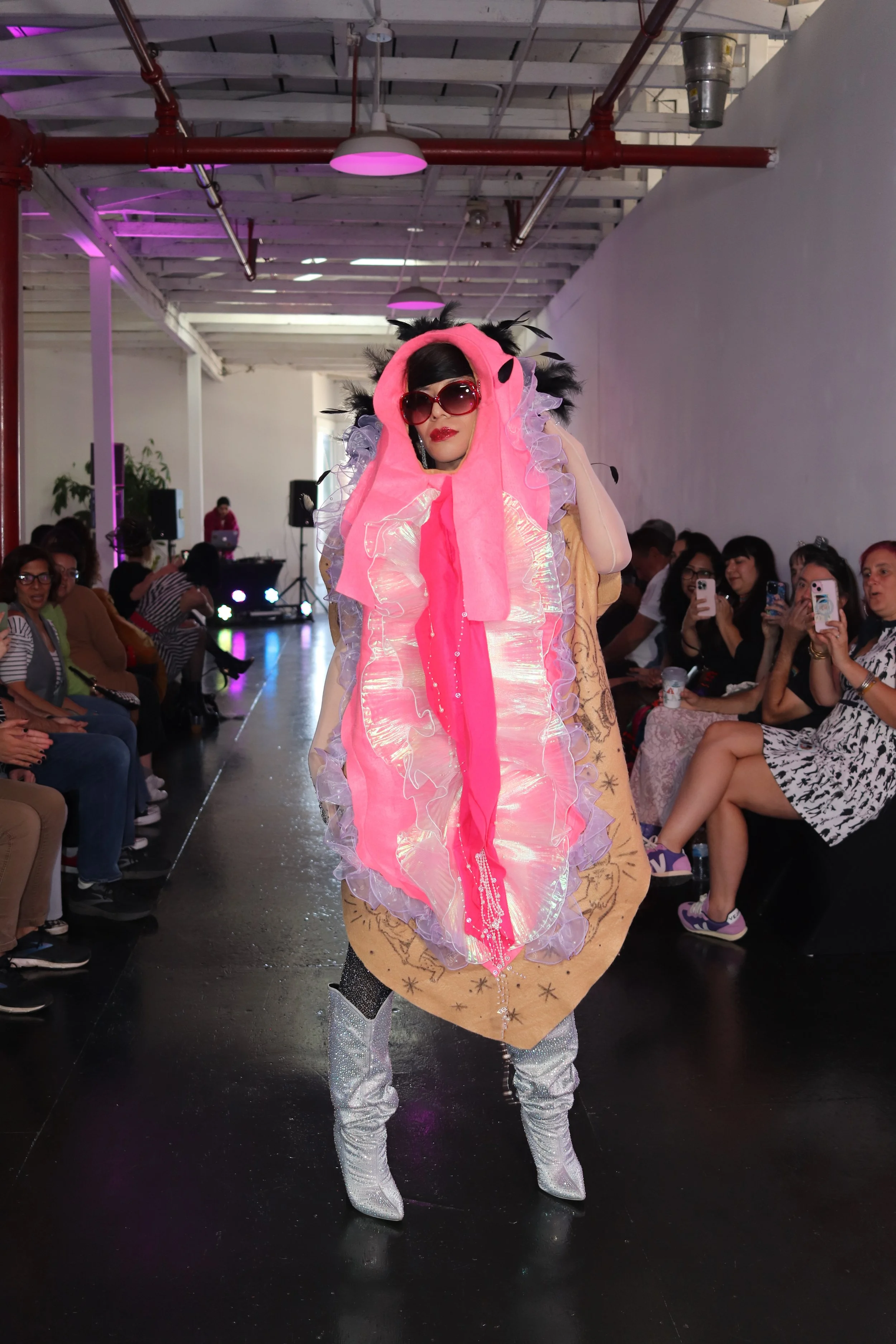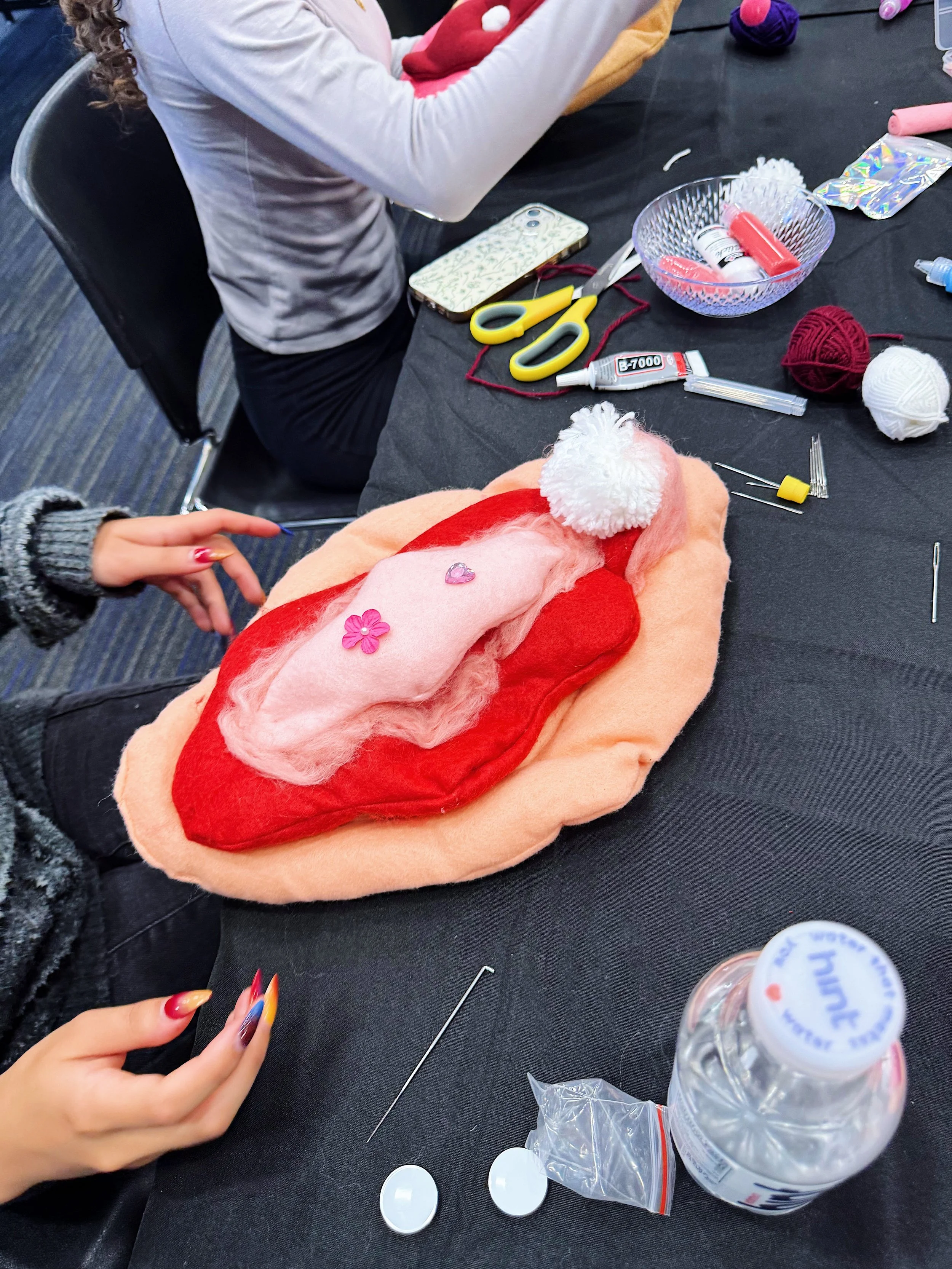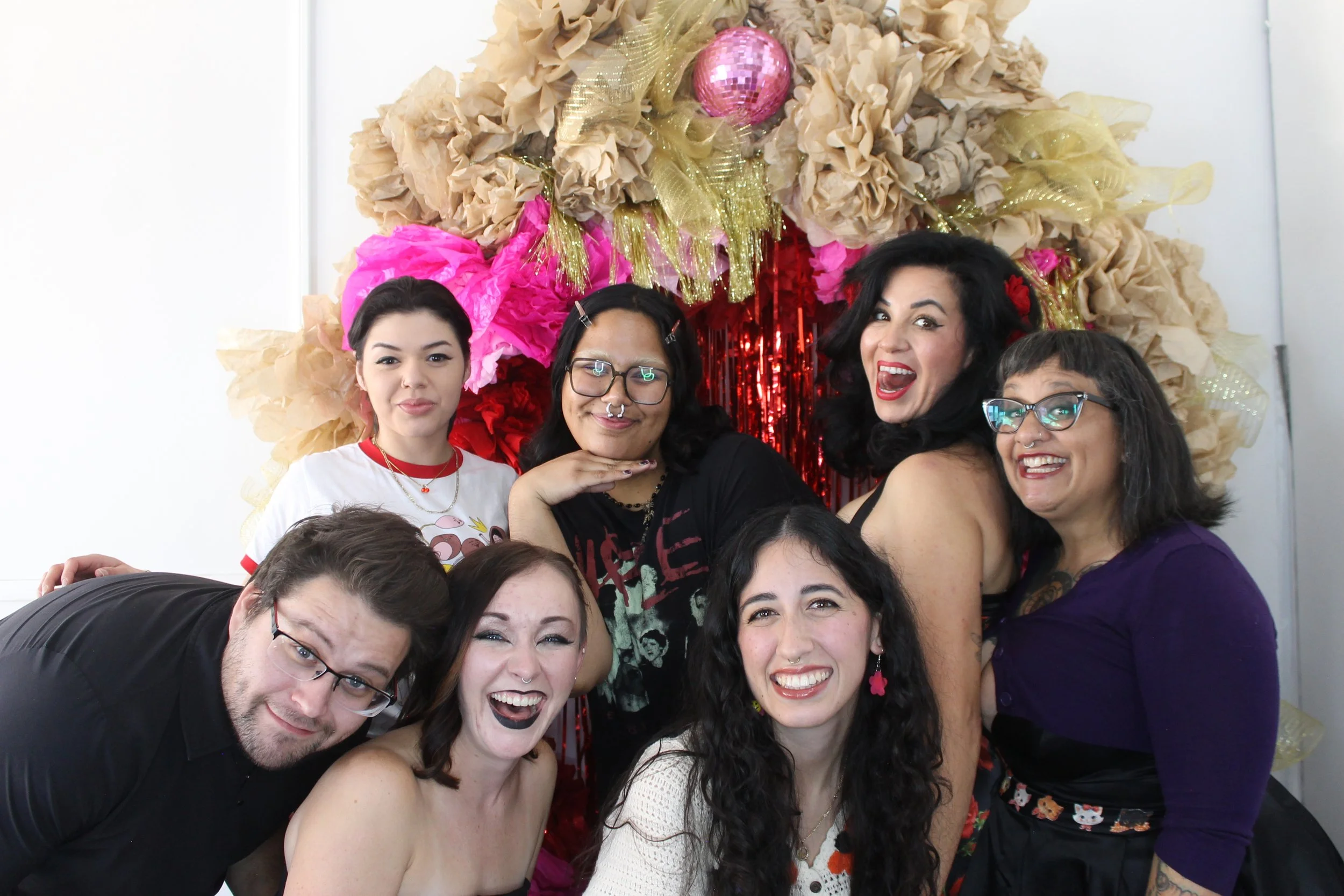The Vulva Project
The Vulva Project is an unapologetic celebration of the body, a reclamation of stories, and a radically joyful act of resistance. What started as a single costume—hand-sewn by our founder’s Palestinian father—has grown into a vibrant, community-powered movement for healing and visibility.
Where It All Began
It began with a classroom and a question: How do we make sex education feel human, humorous, and healing? The answer? A big, bold, beautiful vulva costume designed to disarm shame, spark curiosity, and open up conversations that are often wrapped in silence.
This costume wasn’t just a teaching tool—it became a symbol. One stitched with love, history, and cultural reckoning. Its very existence challenged generations of stigma around sexuality, gender, and the body.
The Vulva Gala
From that symbol came the Vulva Gala—a one-of-a-kind art and performance event that invited queer, trans, BIPOC, disabled, fat, and neurodiverse artists to reimagine the vulva costume in ways that reflect their own lived experiences. Each costume became wearable art: rooted in ritual, joy, grief, identity, and resistance. Together, these performances created a space for catharsis, laughter, and deep communal healing.
Build-A-Vulva Workshops
But we didn’t want this project to live in one night or one gallery. We wanted to bring it to the people. So we created the Build-A-Vulva Workshops—hands-on art-making sessions inspired by the spirit of Build-A-Bear, where participants of all genders and identities can craft their own vulva costume or artwork. Using fabric, glitter, felt, poetry, and paint, folks share their stories, explore body image, and reconnect to themselves and each other in brave, affirming spaces.
Why It Matters
Our bodies have been policed, politicized, and erased for far too long. The Vulva Project uses creativity as a form of restorative justice—giving people the tools to rewrite shame into celebration. These workshops aren’t just art sessions; they’re interventions. They create space for body literacy, cultural reckoning, and communal healing—especially for those whose stories are often left out of traditional sex education.
